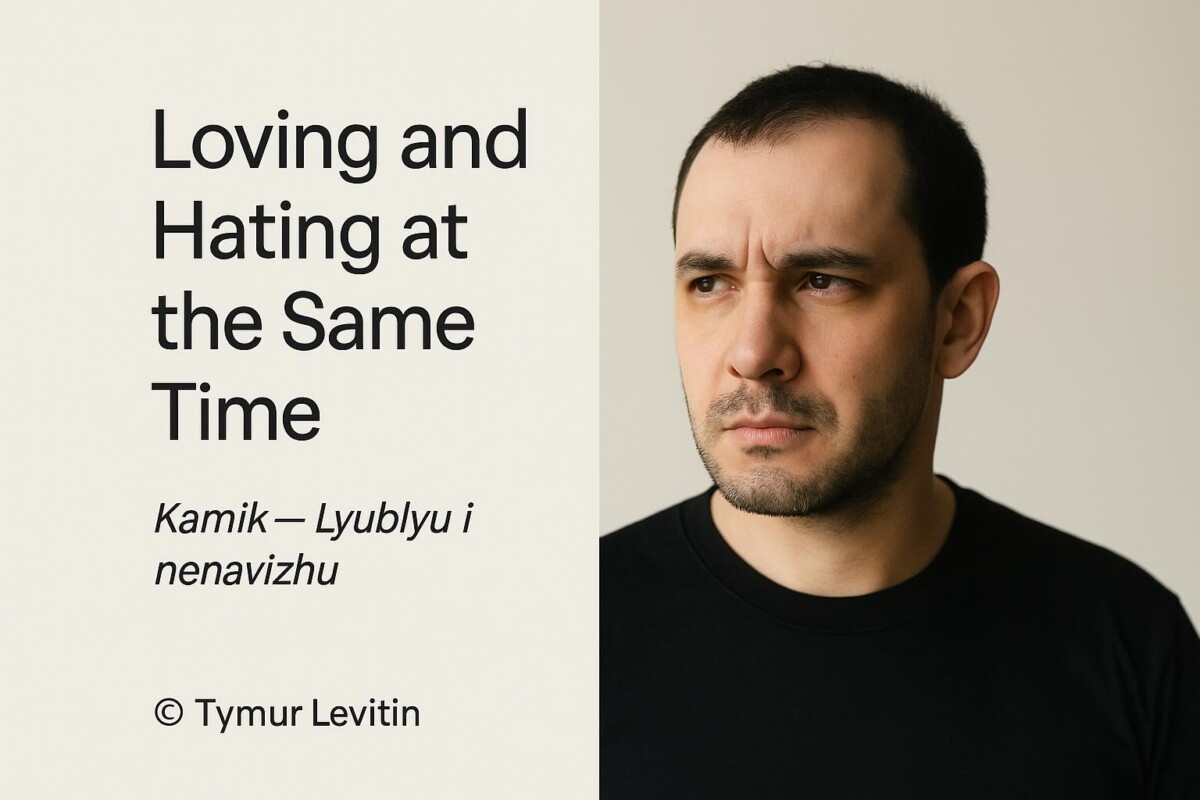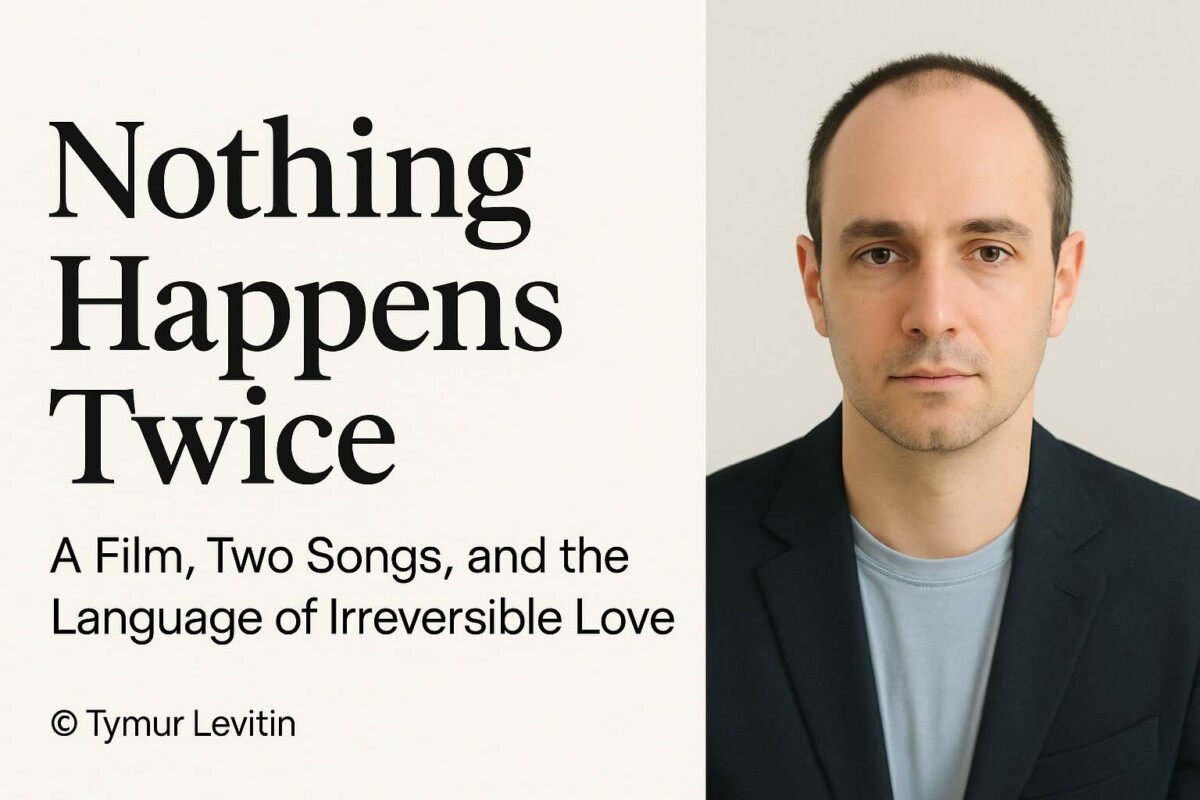选择语言 Levitin Language School – Languages
Introduction: When a Song Becomes a Photo Album
Some songs do not try to invent new words; instead, they turn familiar feelings into echoes we cannot ignore. Emin’s Ty i ya – Ne vernut’ nazad (You and I – No Way Back) is such a song. It is not about the triumph of love but about its fragility, about memory as a double-edged gift, and about the impossibility of returning to what is lost.
Themes of the Song
Distance and Silence
The opening lines create an immediate barrier:
“Ya odin, ty odna, i my tak daleki drug ot druga” (I am alone, you are alone, and we are so far from each other).
The imagery is not metaphorical but spatial, describing emotional distance as physical separation.
Memory as a Trap
The recurring image of a “photo album of memories” turns recollection into something visual and inevitable: you cannot help but flip through its pages, whether you want to or not.
A Thread of Love
The refrain centers around “nas togda svela tonkaya, kak nit’, lyubov’” (we were once brought together by a love as thin as a thread). Fragility becomes the song’s defining metaphor — love is not an anchor, but a thread that can break at any moment.
Linguistic and Stylistic Notes
Colloquial vs. Poetic Register
The song balances simple conversational forms (“Ya odin, ty odna”) with poetic inversions (“po razbitym mečam iz nesbytochnykh skazochnykh snov” - “across shattered swords of unfulfilled fairytale dreams”). This tension mirrors the theme: everyday speech meets dreamlike memory.
Emotional Verbs
The text avoids ornate vocabulary and instead uses verbs of perception: zablyunut’ (to glance), sderzhat’ (to hold back), iskat’ opravdanya (to look for excuses). It is not elevated diction but emotional survival.
Translation Choices
示例 1: “Ne vernut’ nazad tu iskru v glazakh”
- Literal: “It is impossible to bring back that spark in the eyes.”
- Poetic: “The spark in our eyes can never return.”
- Interpretive: “The fire in our gaze has gone, never to return.”
例 2: “Tonkaya, kak nit’, lyubov’”
- Literal: “A love thin as a thread.”
- Poetic: “A fragile thread of love bound us.”
- Interpretive: “We were held together by the thinnest line of love.”
例 3: “Slovno fotoal’bom ya listayu vospominaniya”
- Literal: “Like a photo album, I turn over memories.”
- Poetic: “I leaf through memories as if they were photographs.”
- Interpretive: “Memories unfold like pages of an old album.”
Each variant shows how translation is not about words but about how memory and fragility are experienced in different languages.
Classroom Use: How Teachers Can Work With This Song
- Vocabulary Work: Identify verbs of emotion (sderzhat’, zabyt’, isklyuchit’ svet). Compare with equivalents in English/German.
- Gap-Fill Exercise: Remove key metaphors (thread, photo album, spark) and let students guess.
- Creative Writing Task: “Write about one memory you cannot return to.”
- Pronunciation & Rhythm: Practice the refrain — especially the soft vowels in lyubov’ 和 nit’.
- Translation Workshop: Students compare literal and poetic renderings of tonkaya, kak nit’, lyubov’.
Cultural Resonance
Emin’s voice and phrasing add a cinematic weight to the song. It feels like part of a soundtrack — and indeed, it resonates with the TV series Nichto ne sluchaetsya dvazhdy (Nothing Happens Twice), where love, fate, and irreversibility intertwine.
The lyrics capture what many cultures struggle to name: not just loss, but the cruel awareness that memory itself keeps love alive and dead at the same time.
Author’s Reflection
For me, this song is less about romance and more about how fragile our connections truly are. A thread can hold two lives together — until it breaks. Language here is not just communication but an archive of our emotional failures. That is why I chose to analyze this piece: because in learning a language, we are also learning to name what we cannot return to.

Explore More → Stop Memorizing. Start Thinking.
© Tymur Levitin — Author’s Column. Founder and Director of Levitin Language School / Start Language School by Tymur Levitin.
























